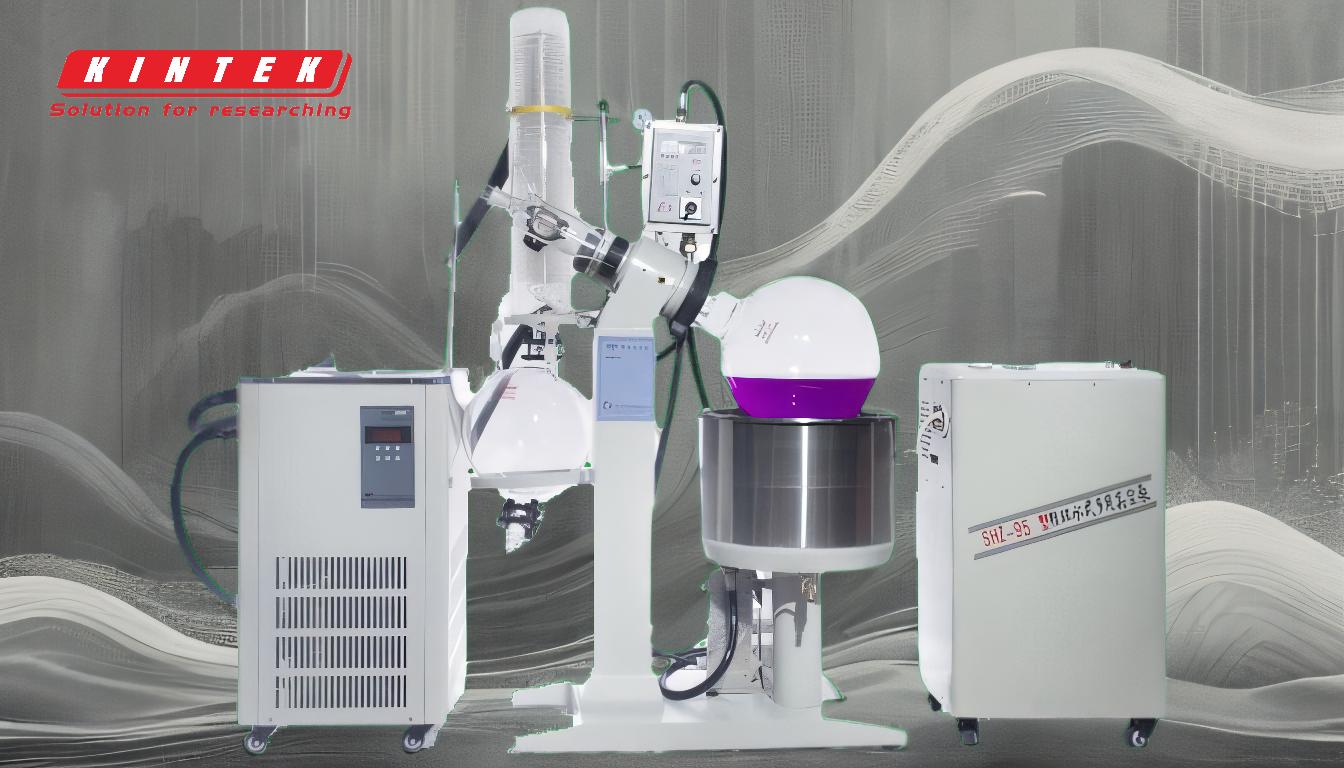Vacuum distillation is a versatile and widely used process across various industries due to its ability to handle heat-sensitive materials, achieve high purity, and operate efficiently at lower temperatures and pressures. Its applications span from desalination and chemical purification to the production of pharmaceuticals, fragrances, and even unique spirits. This method is particularly valuable for industries requiring precise separation, minimal waste, and efficient processing of complex or delicate compounds. Below, we explore the key applications of vacuum distillation in detail.
Key Points Explained:

-
Desalination of Seawater:
- Application: Vacuum distillation is employed in large-scale industrial plants to remove salt from seawater, producing fresh water. This process is crucial in regions facing water scarcity.
- Why It’s Used: The reduced pressure in vacuum distillation lowers the boiling point of water, making the process energy-efficient and cost-effective for large-scale desalination.
-
Chemical and Pharmaceutical Industries:
- Application: Vacuum distillation is extensively used for the separation and purification of liquids, especially those with high boiling points or heat-sensitive properties.
- Why It’s Used: It allows for the processing of delicate compounds without degradation, ensuring high purity and minimal waste. This is critical for producing pharmaceuticals, where purity and consistency are paramount.
-
Short Path Distillation:
- Application: This technique is utilized in chemistry labs, perfume labs, cannabidiol (CBD) extraction, petroleum refineries, and petrochemical plants.
- Why It’s Used: Short path distillation is ideal for small-scale, high-purity applications. It minimizes thermal degradation and is efficient for processing heat-sensitive or small-quantity compounds, such as essential oils, CBD, and specialty chemicals.
-
Food, Fragrance, and Fuel Production:
- Application: Industries like food, fragrance, and fuel production benefit from vacuum distillation for refining and purifying their products.
- Why It’s Used: The process ensures high purity and minimal contamination, which is essential for food-grade products, fragrances, and biofuels. It also reduces energy consumption and operational costs.
-
Wiped Film Distillation:
- Application: This method is used in chemical, food and beverage, pharmaceutical, biotechnology, and nuclear industries.
- Why It’s Used: Wiped film distillation is particularly effective for high-viscosity and heat-sensitive materials. It reduces operating temperatures and pressures, increases evaporation rates, and shortens residence time, making it ideal for delicate compounds.
-
Specialty Spirits and Unique Products:
- Application: Vacuum distillation is used in niche industries, such as craft distilleries, to create unique and high-quality spirits.
- Why It’s Used: The process allows for precise control over flavor profiles and the extraction of delicate aromas, as seen in the production of Empirical Spirits’ Helena, which uses Koji, Pilsner Malt, and Belgian Saison Yeast.
-
Petroleum and Petrochemical Refining:
- Application: Vacuum distillation is a key step in refining crude oil and separating its components.
- Why It’s Used: It enables the separation of high-boiling-point hydrocarbons without thermal cracking, which is essential for producing fuels, lubricants, and other petrochemical products.
-
Biotechnology and Nuclear Industries:
- Application: These industries use vacuum distillation for processing sensitive biological materials and radioactive compounds.
- Why It’s Used: The low-temperature operation prevents degradation of biological molecules and ensures safe handling of radioactive materials.
Conclusion:
Vacuum distillation is a critical technology across a wide range of industries, offering unique advantages such as energy efficiency, high purity, and the ability to process heat-sensitive materials. Its applications are diverse, from producing fresh water and refining chemicals to crafting specialty spirits and pharmaceuticals. For equipment and consumable purchasers, understanding these applications can help in selecting the right distillation systems tailored to specific industry needs.
Summary Table:
| Application | Key Benefits |
|---|---|
| Desalination of Seawater | Energy-efficient, cost-effective fresh water production |
| Chemical & Pharmaceutical | High-purity processing of heat-sensitive compounds |
| Short Path Distillation | Minimizes thermal degradation, ideal for small-scale, high-purity applications |
| Food, Fragrance, & Fuel | Ensures high purity, reduces contamination, and lowers operational costs |
| Wiped Film Distillation | Effective for high-viscosity, heat-sensitive materials |
| Specialty Spirits | Precise flavor control and delicate aroma extraction |
| Petroleum & Petrochemical | Separates high-boiling-point hydrocarbons without thermal cracking |
| Biotechnology & Nuclear | Safely processes sensitive biological and radioactive materials |
Discover how vacuum distillation can optimize your processes—contact our experts today!










